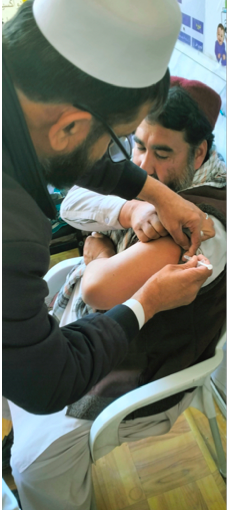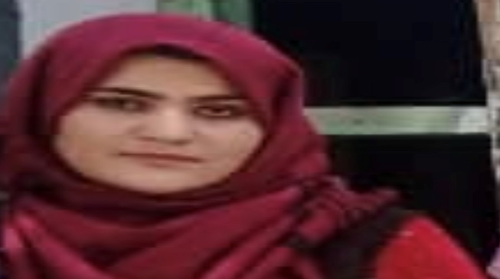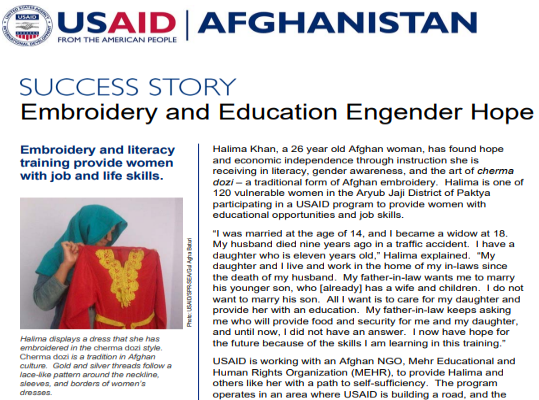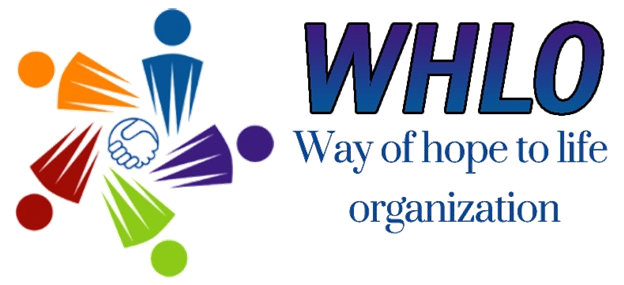Mr. Wahidullah’s Story
 Covid-19 Test and treat Advocacy project which is being implementing by way of Hope to Life Organization (WHL) in three provinces: Logar, Parwan and Maidan Wardak funded byFIND & Unit aid aimed to increase access to diagnosis and treatment for people. To ensure the Project success, WHL used to conduct Community advocacy meeting. This Community advocacy meeting was provided for the local community in different villages and districts with the help of trained community leaders by the WHL. WHL provided TOT for about 36 community religious leaders drawn from those city districts found in Maidan Wardak province aiming to create awareness for the local community remembers. The TOT conducted on 15 August 2022 by WHL professional staffs was very successful and gave insights for community religious leaders.
Covid-19 Test and treat Advocacy project which is being implementing by way of Hope to Life Organization (WHL) in three provinces: Logar, Parwan and Maidan Wardak funded byFIND & Unit aid aimed to increase access to diagnosis and treatment for people. To ensure the Project success, WHL used to conduct Community advocacy meeting. This Community advocacy meeting was provided for the local community in different villages and districts with the help of trained community leaders by the WHL. WHL provided TOT for about 36 community religious leaders drawn from those city districts found in Maidan Wardak province aiming to create awareness for the local community remembers. The TOT conducted on 15 August 2022 by WHL professional staffs was very successful and gave insights for community religious leaders.
Mr. Ihsanullah a religious Leader was one of the TOT trainees that has participated during the session of TOT provided on15 August 2022 by the WHL professional. Following the TOT session provided by WHL, Mr. Ihsanullah became inspired and motivated to empower and create awareness for the local community found in his villages and nearby villages. Then, He conducted the community awareness session in his mosque (MASJID) for the residents of his villages, on average more than 350 people attended in those five consecutive meetings provided by the trainer (Mr. Ihsanullah).
One of the meeting attendee in the session organized by Mr. Ihsanullah was Mr. Waheedullah Sabayon son of Mohammad Asif resident of Shahar -E- Naw village 1st district of Wardak Province, 48 years old and lives with his 9 family members. After having this awareness, he has taken COVID-19 vaccination to prevent the pandemic. However, before this community advocacy meeting, he had different negative opinions about corona vaccination. As Waheedullah said, “I heard from other people that corona vaccination is unlawful (HARAM) in Islam; it is dangerous, deadly causes other diseases in the future. Now I understand the importance of testing and vaccination, the only way to prevent the pandemic is taking the COVID-19 Vaccination. Therefore, I will encourage my family members to do like me soon. “
After 15 days of his vaccination time, all his family members took the vaccination; and he is living a happy and healthy life with his family. At the end, He thanked WHL and its staffs for informing him about this Vaccination
Mustafa Khan – Farmer
The hard conditions of the war in Afghanistan have deeply affected both the economic and living situation of people across the country. Afghan families are suffering from the high price of goods and lack of income, and the collapse of the value of the Afghani has led to an increase in poverty and poor living conditions. Even the minimum level of assistance has become a source of great happiness for families who are struggling.
Mr. Mustafa Khan is a displaced person from the Faryab province IDP and is the breadwinner for a large family of thirteen people. He was one of the beneficiaries of the project of supporting self-reliance for affected families, receiving full support from WHLO for the cultivation of one hectare of wheat crop.

“We were displaced from the Faryab province to the Adina Masjed village Char Bolak of Balkh province, we left our house and our farms in search of safety.” Mr. Mustafa Khan says.
“Our main source of income is agriculture. We cannot work in another profession, and we do not have enough capital to work, so we worked as ranchers in one of the fields in the village of Char Bolak district. When I heard about WHLO projects, I went to the local council and registered, and got full agricultural support for planting one hectare of wheat. They gave me seeds, fertilizers, pesticides, irrigation, and harvest wages, in addition to agricultural training and field follow-ups.”
Mustafa Khan met all the admission criteria to be involved with the project. But more than that, his family was extremely poor and unable to provide proper care to the children.
“After verification, I was accepted. It was wonderful news. We planted a hectare of wheat without incurring any costs, from planting to harvesting. May God reward you for this support. My family is large and needs a large expense. After the harvest, I will sell wheat and pay my debt. The production was good, thank God.”
There are many people, like Mustafa khan, who are deprived of the most basic necessities. WHLO seeks to reach them and help them with difficult life conditions through many different projects.
Nazi’s Story
Nazi is a 28 year old Afghan woman who participated in the training course Youth Action for Safety and Security of Urban Women and Girls, in Mazar-E-Sharif. As part of the program, Nazi participated in community consultation to identify a public policy problem in their community on safety, security, safe movement and prevention of rights of women and girls, and develop a community action plan to solve it.
Through the program, Nazi has found hope, information, self-esteem and skills to react and manage the rise of violence against women and girls – starting from her own home.
“I have a sister called Najee. My parents wanted her to marry my cousin, but she didn’t want to because he has two children from another woman who died a year ago. My father tried to force Najee to marry with my cousin because he gives a lot of money to my parents. He promised to give $10 to my father.

“For close to 6 months, home was like a hell for me and my siblings because we didn’t know how to defend my sister’s rights. After participating in the training, I started speaking with my father to convince him the decision was wrong, that my sister has right to choose her husband, and I explained to him forcing her to marry is a kind of violence which is harmful for my sister’s future life and the rest of my family too. Eventually, my parents changed their decision.
“Before the training I was afraid to speak up against what my father wanted. Now I have self-esteem, information and skills to fight for my rights, the right of my family, and even for all women and girls. Before, we lost our happiness. But now I found hope for my future life because of what I have learned in this training. I want to say special thanks to WHLO and UN-HABITAT to trained us to defend the rights of women and girls.”
UN-HABITAT is working with WHLO to provide Nazi and others like her with a path to self-sufficiency. The program operates in an area where UN-HABITAT is building a road, and the training complements construction by showing the development of new opportunities for the rest of the community. There are three centers established along the new road, all giving awareness about youth action for safety and security of urban women and girls. The 9-month program empowers participants and provide them skills and hope to bring a change to their lives.
Ali’s Story
Ali’s early job was picking up rags and doing odd jobs. Earning two square meals a day was his only goal. His parents had big dreams for him, but poverty stopped them from dreaming any bigger.
poverty stopped them from dreaming any bigger.
Ali is 12 years old and lives in Char Qala wazir Abad district 10 Kabul city. He spent most of his childhood picking up rags to help his father make ends meet. Ali was a bright child from the beginning; his parents wanted to educate him, but in their situation they could only dream.
When a Mission Education center opened in their area, Ali was one of the first to enrol. A bright and hard-working student, his progress has been remarkable. Ali’s parents, teachers and neighbours are proud of him.
Latifa’s Story
“Our daughter is our strength and hope. She is the youngest in the family, but she motivates everyone.”
Latifa’s mother is proud of having a daughter who has emerged from of a lot of problems as a fighter.
has emerged from of a lot of problems as a fighter.
Latifa had to drop out of school because her poor father was unable to repay a debt he had taken at the time of his eldest son’s marriage. She had just completed her 10th standard examination, but her father could not support her further education with such a low income.
Latifa was a bright student, but she also understood her father’s problems. Even though she had to discontinue her formal schooling, Latifa enrolled herself at the nearest WHLO Talk English program and was trained in soft skills and English communication. Within six months Latifa was ready to take up work, finding a was place as a private tutor in a coaching institute.
Latifa now earns enough to help provide for her family and is keen to completing her studies through open learning. Her hard work inspires many including her brother who also has joined the WHLO Talk English program after completing his Class 12 Standard exams.


